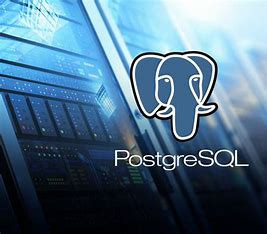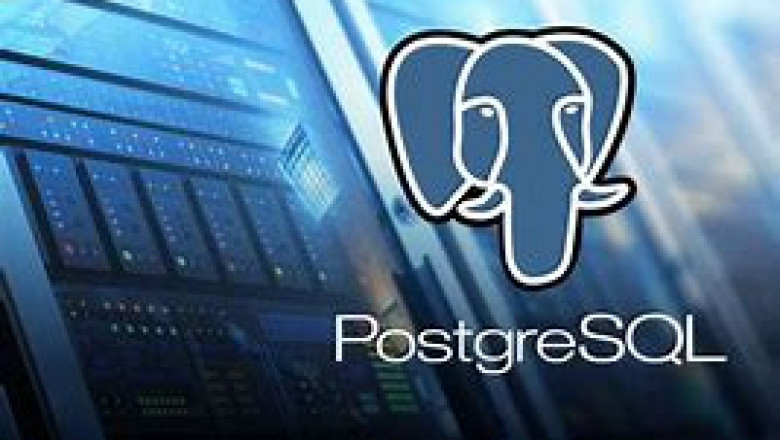views
In a digital-first world, data has become the backbone of every successful application. From e-commerce platforms and financial services to logistics and real estate portals, robust data storage and management solutions are critical. Among various database technologies available today, PostgreSQL has emerged as a powerful, flexible, and reliable open-source relational database system—trusted by startups and enterprises alike.
Developed over three decades, PostgreSQL (also known as Postgres) has matured into one of the most advanced and feature-rich databases, often considered the “open-source equivalent” to commercial heavyweights like Oracle or SQL Server.
What is PostgreSQL?
PostgreSQL is an object-relational database management system (ORDBMS) known for its stability, extensibility, and adherence to SQL standards. It supports both relational and non-relational queries and is highly scalable, both vertically and horizontally.
Originally developed at the University of California, Berkeley, PostgreSQL is maintained by a global community of developers and receives regular updates that enhance performance, security, and compatibility.
Key Features That Make PostgreSQL Stand Out
1. ACID Compliance
PostgreSQL fully supports ACID (Atomicity, Consistency, Isolation, Durability) principles, ensuring that all transactions are processed reliably and adhere to data integrity.
2. Advanced Data Types
Unlike many relational databases, PostgreSQL supports a wide range of advanced data types such as JSON, XML, hstore (key-value pairs), arrays, and geometric data—making it ideal for complex, data-rich applications.
3. Full-Text Search
It comes with built-in full-text search capabilities, allowing developers to index and search textual data efficiently, without needing external tools.
4. Extensibility
PostgreSQL is highly customizable. You can define your own data types, functions, and even build extensions like PostGIS for geospatial queries or TimescaleDB for time-series data.
5. MVCC for Concurrency
Multi-Version Concurrency Control (MVCC) enables multiple users to work on the database without impacting performance or data integrity. It’s particularly valuable in high-traffic systems where parallel reads and writes are common.
Ideal Use Cases for PostgreSQL
PostgreSQL is a versatile database suitable for a wide variety of applications, including:
-
Enterprise applications: Its compliance with standards and support for complex queries make it ideal for ERP and CRM systems.
-
Real-time analytics: Thanks to features like parallel query execution and table partitioning.
-
Geospatial applications: With PostGIS, PostgreSQL becomes a powerful spatial database system.
-
Financial systems: Known for reliability and precision in numeric operations, it suits banking and fintech apps.
-
Content management systems: It supports XML and JSON for hybrid content and metadata storage.
Companies Using PostgreSQL
Many leading organizations across the globe use PostgreSQL to power their core platforms, including:
-
Apple: Uses it in several internal applications.
-
Instagram: Initially relied on PostgreSQL for managing millions of users and photos.
-
Spotify: Leverages it for user data and metadata storage.
-
Reddit: Uses PostgreSQL to store comments, votes, and user info.
PostgreSQL vs. Other Databases
| Feature | PostgreSQL | MySQL | MongoDB |
|---|---|---|---|
| SQL Compliance | High | Medium | Low |
| Schema Flexibility | Medium | Medium | High |
| Extensibility | High | Low | Medium |
| JSON Support | Strong | Moderate | Native |
| ACID Compliance | Yes | Yes | Optional |
| Best For | Complex apps, analytics | Web apps | Unstructured data |
While MySQL is simpler and MongoDB excels in unstructured data, PostgreSQL provides a balance between robust relational data handling and modern NoSQL features.
Challenges with PostgreSQL
Like any technology, PostgreSQL isn’t perfect. Some challenges include:
-
Steep learning curve: Especially when dealing with advanced features like partitioning or custom functions.
-
Memory-intensive configurations: Optimizing performance may require tuning memory and parallel execution settings.
-
Fewer managed cloud options: Though improving, it still has fewer PaaS providers than MySQL.
However, with growing adoption, community support, and cloud services like Amazon RDS and Google Cloud SQL supporting PostgreSQL, many of these concerns are being addressed.
Hexadecimal Software: Building Intelligent Systems with PostgreSQL
At Hexadecimal Software, we understand that your database is the foundation of your digital success. Our developers specialize in building high-performance backend systems using PostgreSQL, whether you're running a web app, an analytics dashboard, or a real estate portal.
We help clients design normalized schemas, optimize queries, implement replication, and ensure data integrity—whether you’re handling a few hundred users or scaling to millions.
Discover Real Estate Tech Trends on the HexaHome Blog
If you're interested in how data technology integrates with property platforms, smart homes, and urban planning, visit the HexaHome Blog. Get insights into how tech is transforming real estate—from digital listings to smart city infrastructure.















Comments
0 comment